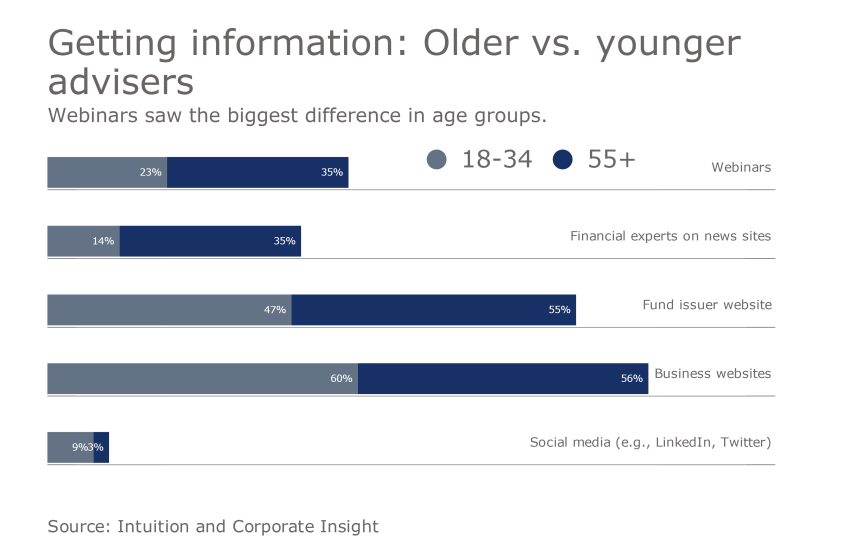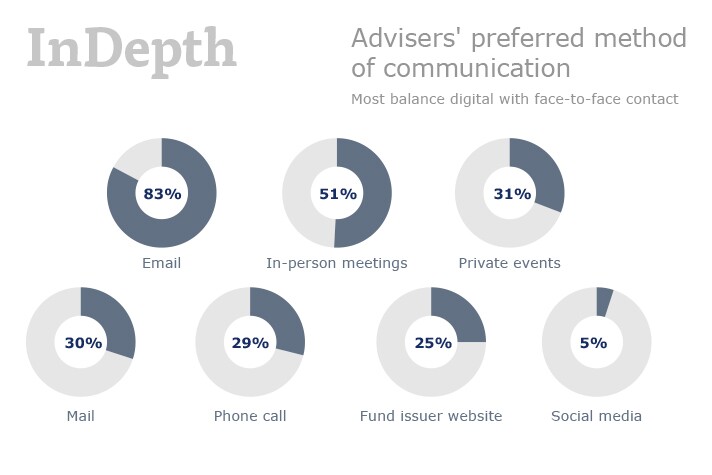
How advisers work and how they communicate.
As one example, under the category of what their favorite fund issuers do well, responses such as "well-designed, content-rich websites," and "help solve problems," were on the bottom half of the list. An answer that ranked much higher, at second place, was a very traditional sounding "good customer service." Topping that list was an unsurprising "relevant fund information."
Click through to see a few more results from the study.
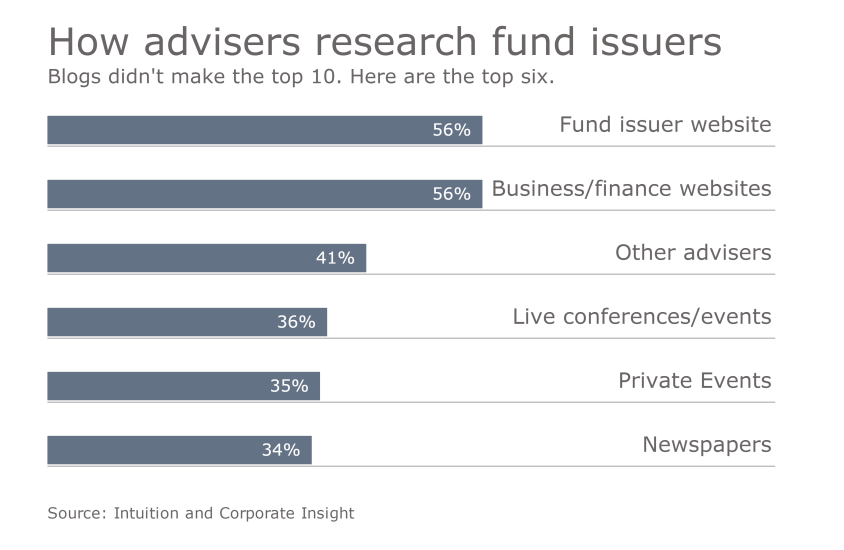
Research channels
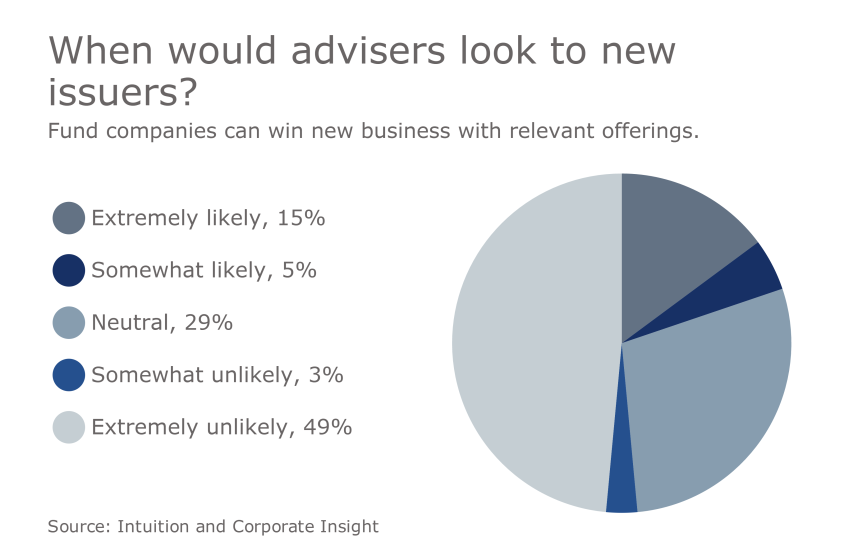
Content is king
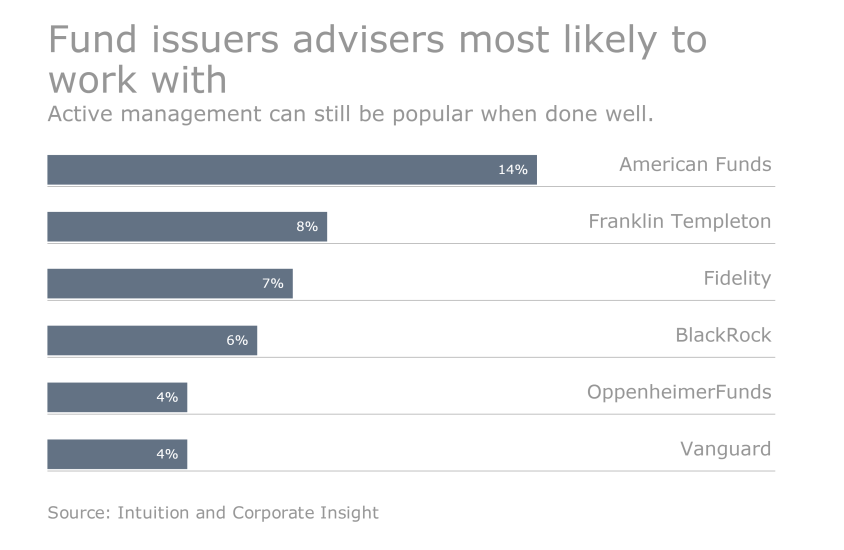
Active vs passive
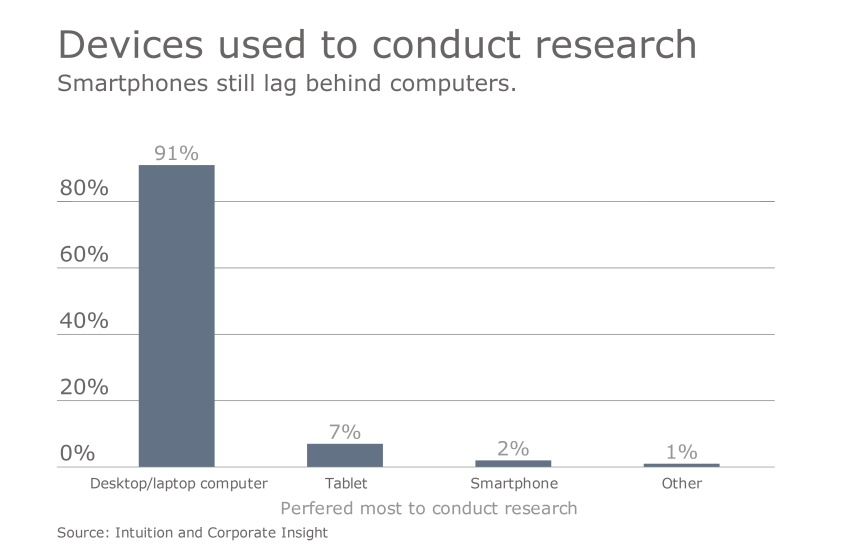
Smartphones lag behind
